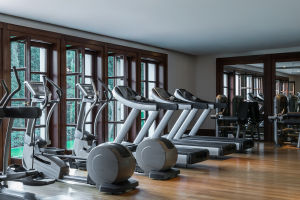In today's world, staying fit is about more than just working out regularly; it's about tracking your progress and making data-driven decisions to enhance your performance.
Enter wearable fitness technology—gadgets that do far more than just tell the time. From fitness trackers to smartwatches, these devices are revolutionizing how we monitor our physical activity, sleep patterns, and overall health.
Whether you're an elite athlete or a casual gym-goer, wearable fitness tech is becoming an indispensable tool for improving fitness and well-being.
1. Real-Time Data for Immediate Feedback
The most significant advantage of wearable fitness devices is the ability to get real-time data on your physical activity. These devices offer immediate feedback on how your body is performing, allowing you to adjust your workouts and habits accordingly.
1.1. Heart Rate Monitoring
One of the most common features of fitness trackers is heart rate monitoring. Keeping track of your heart rate during workouts helps you understand how intensely you're exercising. Monitoring your heart rate zones can ensure you're working out at an optimal level—whether you want to improve cardiovascular fitness or maximize calorie burning.
1.2. Step Count and Activity Tracking
Most fitness wearables track your daily step count, reminding you to stay active throughout the day. These step counters can encourage you to move more, promoting healthier habits like walking or climbing stairs. The visual cues provided by these devices motivate you to hit your daily activity goals.
2. Sleep Tracking for Better Recovery
Recovery is as crucial as the workout itself, and wearable devices help track your sleep to ensure you're getting the rest you need for muscle recovery and overall health.
2.1. Sleep Stages Monitoring
Wearables like the Fitbit and smart watch offer sleep stage tracking, which monitors how much time you spend in light, deep, and REM sleep. Deep sleep is essential for physical recovery, as this is when the body repairs muscle tissue. Wearables give you insights into your sleep quality, helping you make adjustments for better recovery.
2.2. Personalized Sleep Recommendations
Some wearables even provide personalized recommendations based on your sleep data. For example, they may suggest when to go to bed or when to wake up for optimal sleep quality. These insights help in adjusting your routine to get the best recovery possible.
3. Setting and Achieving Fitness Goals
Wearable fitness tech is a game-changer when it comes to goal-setting and tracking your progress toward those goals. With these devices, setting measurable, realistic goals has never been easier.
3.1. Activity Goals and Milestones
Most devices allow you to set specific activity goals, whether it's steps taken, calories burned, or minutes of exercise. The device tracks your progress throughout the day, encouraging you to hit milestones. As you see your progress in real-time, you're more motivated to stick to your fitness routine.
3.2. Challenges and Social Motivation
Many fitness trackers allow you to join challenges with friends or join global fitness communities. Competing with others can provide extra motivation to push yourself and track progress over time. Social features make fitness more enjoyable, and the sense of achievement when you complete challenges can be immensely rewarding.
4. Tracking Specific Activities
While step counting is useful, wearable fitness tech excels at tracking more specialized activities like running, cycling, swimming, and even weightlifting.
4.1. Running and Cycling Metrics
For runners, wearables can track distance, pace, elevation, and calories burned, helping you monitor improvements in endurance and speed. In addition, cycling metrics like cadence, speed, and power output help cyclists track their performance, making it easier to focus on areas that need improvement.
4.2. Swimming Tracking
Advanced wearables are even waterproof, allowing swimmers to track their laps, swimming techniques, and overall performance in the pool. Devices like the Garmin Swim Series track your swimming technique, pace, and swim cycle count, giving you insights into how efficiently you're swimming.
5. Health Monitoring Beyond Fitness
Wearable fitness tech isn't just about tracking exercise—many devices now include health monitoring features that track long-term health metrics like blood oxygen levels and stress management.
5.1. Blood Oxygen Levels
Devices like the smart watch 6 offer blood oxygen level monitoring. This can help detect any potential issues with lung function or oxygenation. Regular tracking of blood oxygen can provide valuable insights into overall health and fitness.
5.2. Stress and Relaxation Monitoring
Some wearable fitness trackers have built-in stress management features that help monitor your body's stress levels. For example, the Fitbit Charge 4 has a "Relax" feature that guides you through breathing exercises to reduce stress. Monitoring stress and relaxation helps to promote overall mental health, which is essential for maintaining a healthy lifestyle.
6. Long-Term Tracking and Data Analysis
Wearable fitness devices store data over time, which is valuable for tracking long-term progress and making adjustments to your fitness regimen.
6.1. Trends and Insights
By reviewing data over weeks, months, or even years, wearables help you track trends in your activity, fitness levels, and overall health. Are you improving your endurance? Have your sleep patterns improved? These devices provide trends that help identify areas where you're excelling and areas that need more attention.
6.2. Data Sharing with Professionals
Some devices allow you to share your fitness and health data with trainers, physical therapists, or even doctors. This can be particularly useful for athletes or individuals undergoing rehabilitation to ensure that their workouts align with their health goals.
Conclusion: Why Wearable Fitness Tech is a Game-Changer
Wearable fitness tech is no longer just a trend; it's a powerful tool for anyone serious about tracking their fitness journey. From real-time data and sleep tracking to specific activity monitoring and long-term data analysis, these devices provide invaluable insights that help optimize workouts, improve health, and achieve fitness goals. Whether you're a seasoned athlete or a beginner, investing in wearable fitness tech could be the key to unlocking your full potential.


